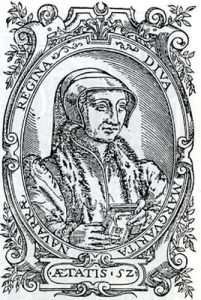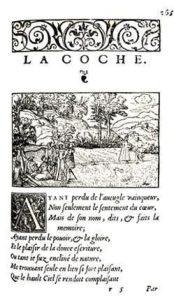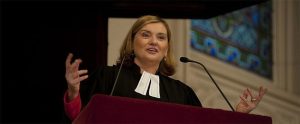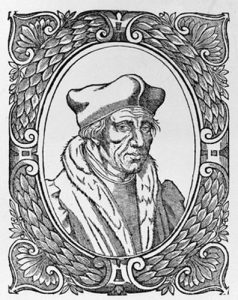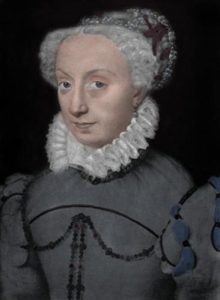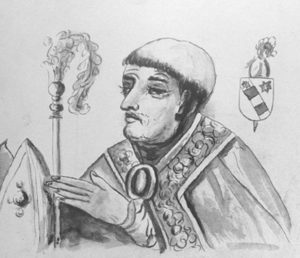The king's daughter
Marguerite’s parents were Charles d’Orléans, duke of Angoulême and Louise de Savoie. Her brother was François 1st, over whom she had a great and lifelong influence. She played a major political role at the king’s court.
She married Charles, the duke of Alençon in 1507. Widowed in 1525 she remarried in 1527 with Henri d’Albret, king of Navarre. She had a daughter, Jeanne d’Albret whose own son was Henri de Navarre, the future Henri IV.
A literary person
Marguerite played a prominent role in the cultural life of her time. She was highly educated and had an unquenchable thirst for learning, – she knew Greek, Latin and Italian. Her influence was widespread and her castle in Nérac became an eminent humanistic centre.
Like many other humanists of her time, she was receptive of new ideas. She protected many Protestants and invited them to her court.
As early as 1517, she was very close to Lefevre of Étaples and Briçonnet, the bishop of Meaux. Like them, she adopted the Reformed ideas but did not break away from the Catholic Church.
Because of her poetic works, she was considered one of the most prominent literary figures of her time. Her poems gathered under the title Marguerites de la Marguerite des princesses were published in Lyons in1547. Her best-known work is Heptameron, a collection of tales written on the model ofBoccace’s Decameron.

